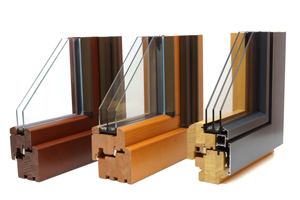What are the Most Energy Efficient Windows?
Serving Vancouver WA and Portland OR
 Wood windows are the most energy-efficient windows, followed by vinyl and aluminum, according to Energy Star and The National Fenestration Rating Council (NFRC). Wood is the top choice because it doesn’t conduct heat and cold as aluminum does. However, because wood is more prone to rotting, they may not be the best choice if you live in an area where it rains often. You’ll want to look for the Energy Star rating to help determine the best windows for your climate.
Wood windows are the most energy-efficient windows, followed by vinyl and aluminum, according to Energy Star and The National Fenestration Rating Council (NFRC). Wood is the top choice because it doesn’t conduct heat and cold as aluminum does. However, because wood is more prone to rotting, they may not be the best choice if you live in an area where it rains often. You’ll want to look for the Energy Star rating to help determine the best windows for your climate.
What Makes Windows Energy-Efficient?
In addition to your window frame, there are other factors that contribute to your window’s energy efficiency, including the number of window panes, Low-E glass coatings, and gas fillings.
- Multiple Window Panes: Many older homes have single-pane windows — which is just one layer of glass. Single-pane windows are horrible insulators. They allow heat and cold air to escape quicker. Double-pane windows provide better insulation because of the air pocket between the panes whereas triple-pane windows add even more insulation.
- Gas Fills: Many window manufacturers today take their energy-efficiency a step further by injecting krypton or argon gas between each pane to provide even more insulation. This is because gas is heavier than air. These gases are transparent, odorless, and non-toxic so there’s no need to worry in the event of a leakage.
- Low-E Glass: Low-Emissivity or Low-E glass is an exterior coating designed to prohibit infrared light and UV rays from entering your home, while still allowing visible light through. Low-E glass not only provides energy efficiency but it also helps prevent your furniture and decor from fading.
- Window Spacers: Window spacers are small metal or plastic pieces that support each window pane. They help improve your window’s insulation, thus improving energy-efficiency.
Have a Question or Need a Free Estimate?
Leave your information below and we will contact you in 30 minutes or less. After hour inquiries will be followed up on the next business day.
How Are Windows Rated?
The NFRC and Energy Star evaluate window frames based on:
- U-Factor: how much heat they transfer; which tells you how well it insulates
- Visible transmittance (VT): the amount of light transmitted through the window
- Solar heat gain coefficient (SHGC): the fraction of solar energy transmitted
You can find a label of these performance ratings on Energy Star-certified products.
Energy-efficient windows are a great investment when properly installed by an experienced professional. So look for a reputable company with outstanding reviews and customer service and always request an estimate before agreeing to the project. Most company’s offer free no-obligation estimates.
